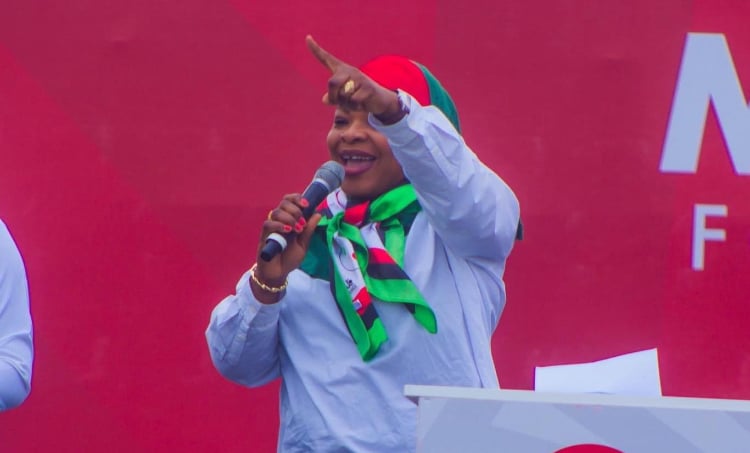Ghanaian media practitioner and National Democratic Congress (NDC) communication team member, Shamima Muslim, has raised significant concerns regarding the financial management of Ghana’s energy sector under the ruling New Patriotic Party (NPP). She asserts that the NPP has plunged the sector into an unsustainable debt situation, primarily fueled by the government’s redirection of funds toward its 2024 election campaign at the expense of key stakeholders, including Independent Power Producers (IPPs). In her statement, Shamima highlights a troubling accumulation of $2 billion in debt, emphasizing that the government’s financial priorities appear to favor political ambitions rather than addressing urgent needs within the energy sector.
Muslim’s critique centers on the notion that the government is neglecting its responsibilities to the IPPs and other entities connected to the energy sector, leading to a significant deterioration in service and operational capacities due to unpaid debts. She characterizes the NPP’s approach as one that prioritizes short-term electoral gains over long-term sustainability of essential services. By invoking the term “throwing away the baby with the bath water,” she underscores the severity of the implications of such financial mismanagement, which poses risks not only to the energy sector but to the broader economy as well.
The state of the energy sector, according to Muslim, is indicative of a larger crisis within the NPP’s administration. She believes that the party’s singular focus on retaining power for the upcoming elections has led to neglecting pressing challenges. As a result of this political maneuvering, she warns that the repercussions will be felt across various stakeholders, including contractors, suppliers, and laborers who rely on the health of the energy sector for their livelihoods. Her call to action for the IPPs and other affected parties to vocalize their struggles is a potent plea for accountability and transparency amidst a backdrop of perceived political exploitation.
Shamima further critiques the NPP’s apparent extravagance, suggesting that it is disingenuous for the party to engage in lavish spending while simultaneously defaulting on debts owed to energy sector stakeholders. She challenges the government’s integrity by questioning how it can justify its actions when it owes significant amounts to key partners. Through her social media platform, she amplifies a sense of urgency, encouraging the stakeholders in the energy sector to come forward and share their experiences, thereby fostering a dialogue that could potentially lead to greater accountability and corrective measures within the sector.
The implications of this ongoing debt crisis in the energy sector extend beyond immediate financial obligations. If not addressed, these issues could jeopardize the country’s energy security and its ability to attract future investments. Muslim’s assertions carry a significant weight, as they reflect broader concerns about governance, fiscal management, and the prioritization of vital public services in the face of political expediency. The narrative she presents aligns with a growing discontent among citizens who are increasingly aware of the challenges posed by governmental negligence toward essential sectors.
In conclusion, Shamima Muslim’s allegations suggest that the NPP’s pursuit of electoral success may be undermining the integrity and functionality of Ghana’s energy sector. Her call for increased transparency and accountability from both the government and the IPPs emphasizes the need for a reevaluation of priorities as the country approaches the 2024 elections. The seriousness of the accumulated debt and its consequences for the energy sector illustrate the critical intersection of politics, economics, and public service, necessitating a collaborative approach to resolving these intertwined challenges for the benefit of Ghanaian society.


